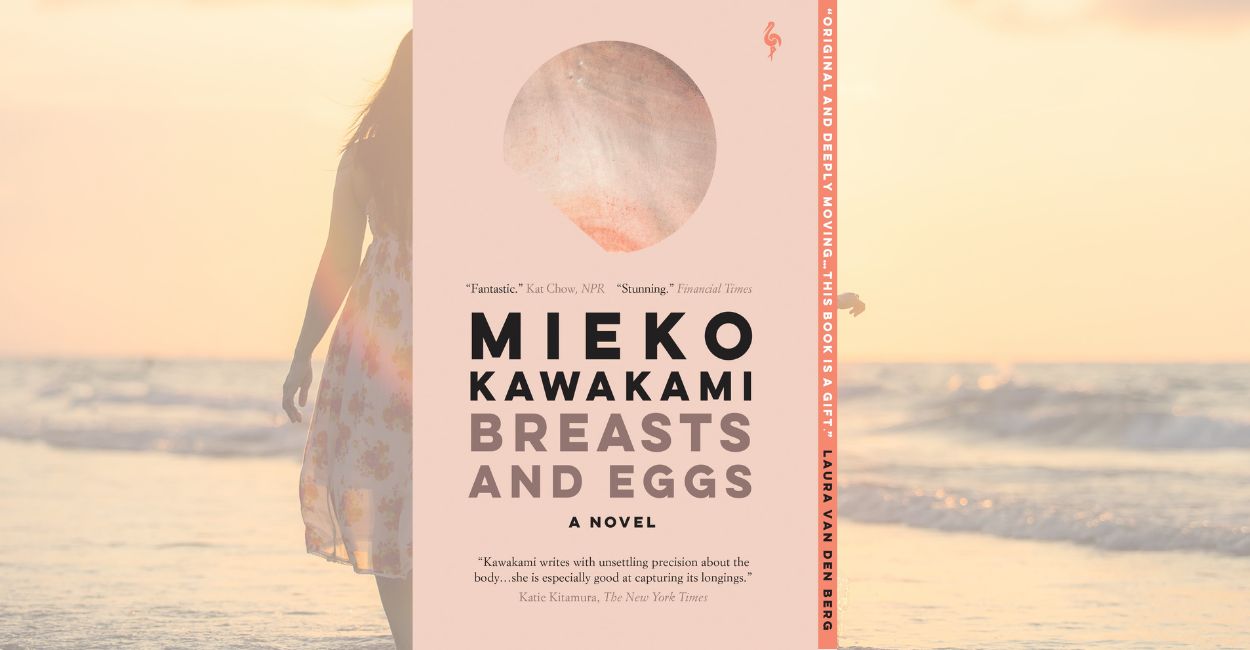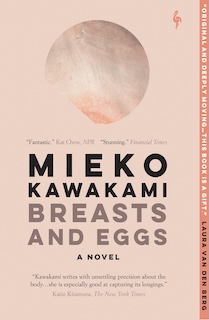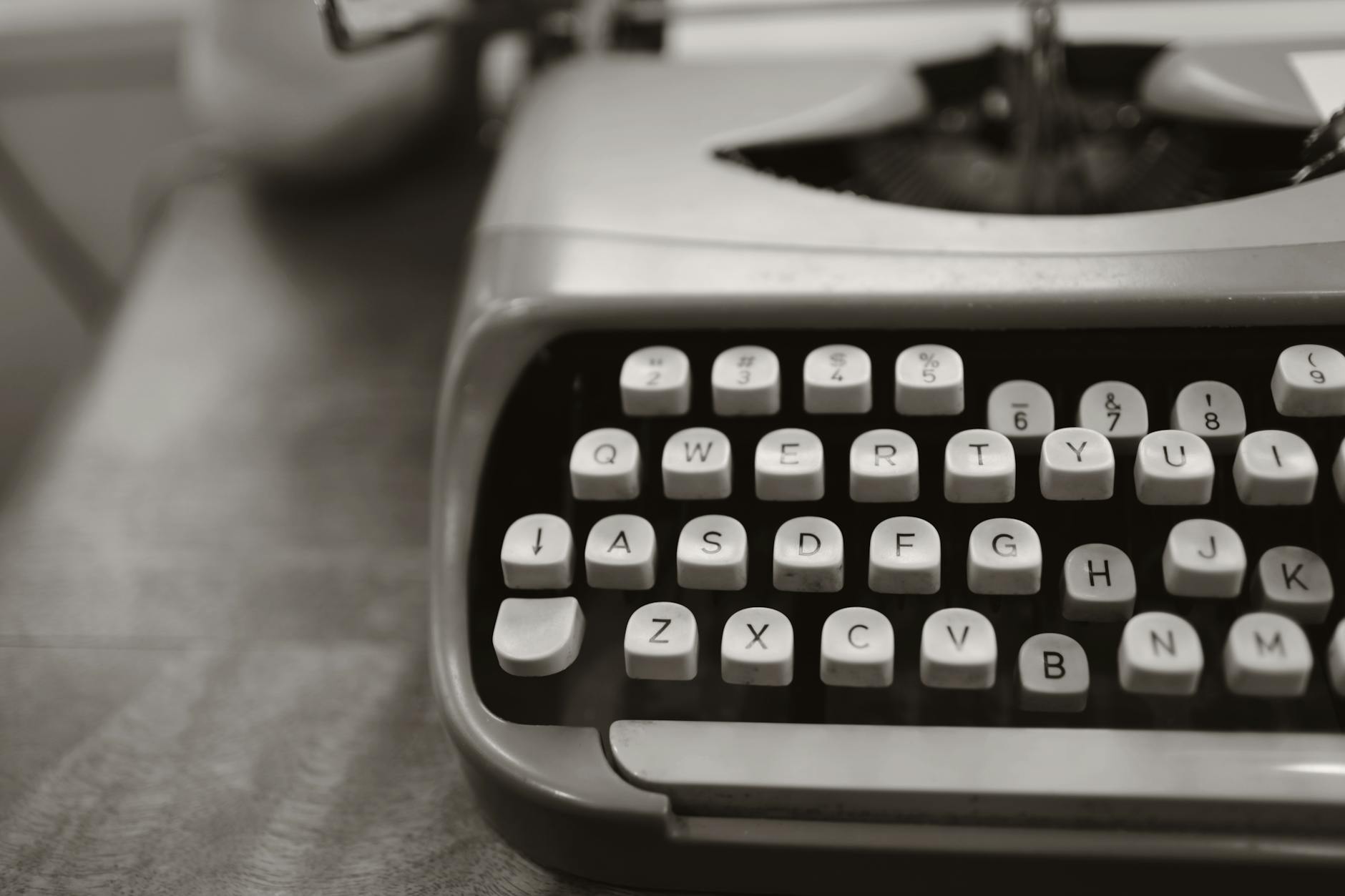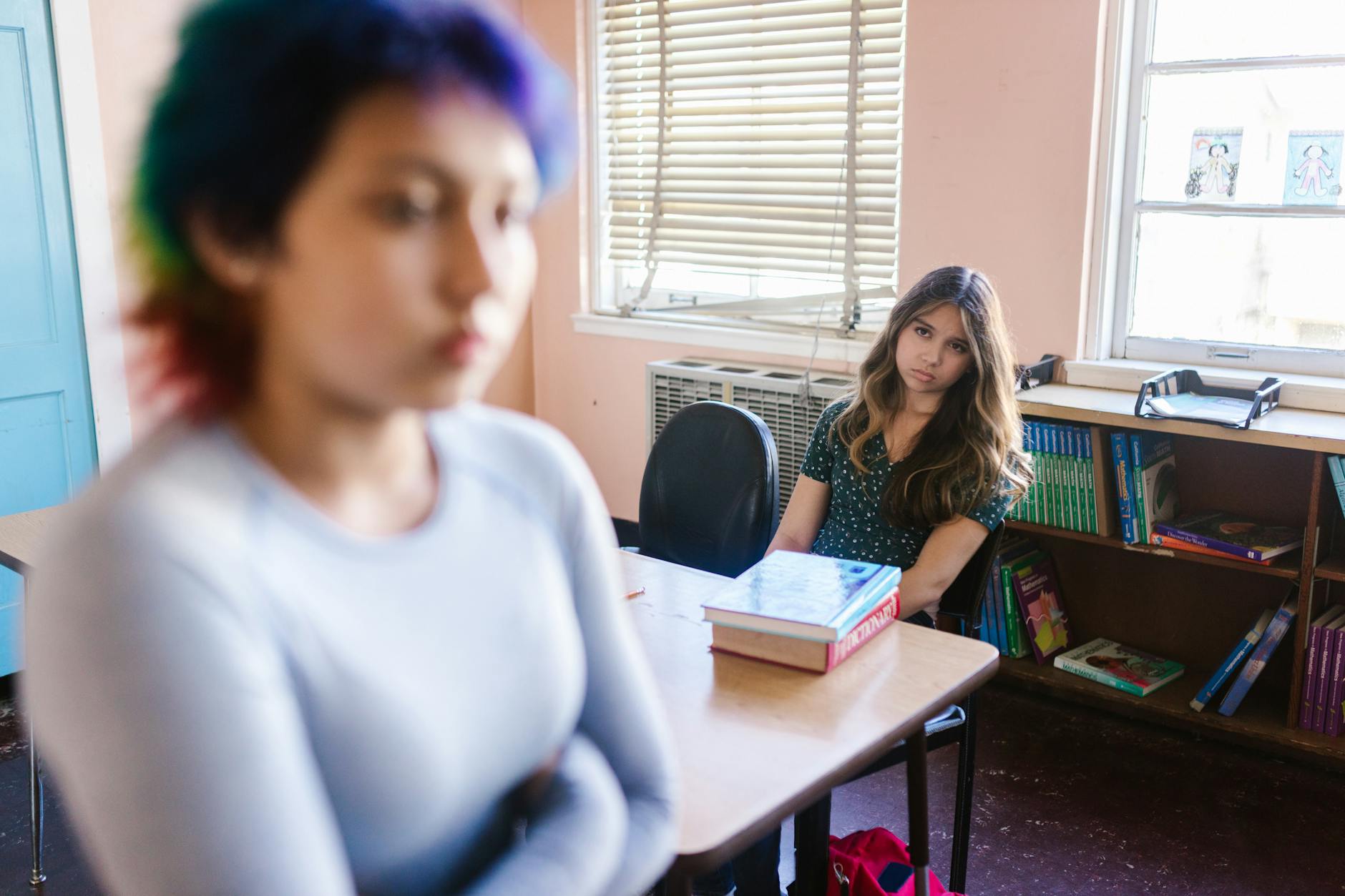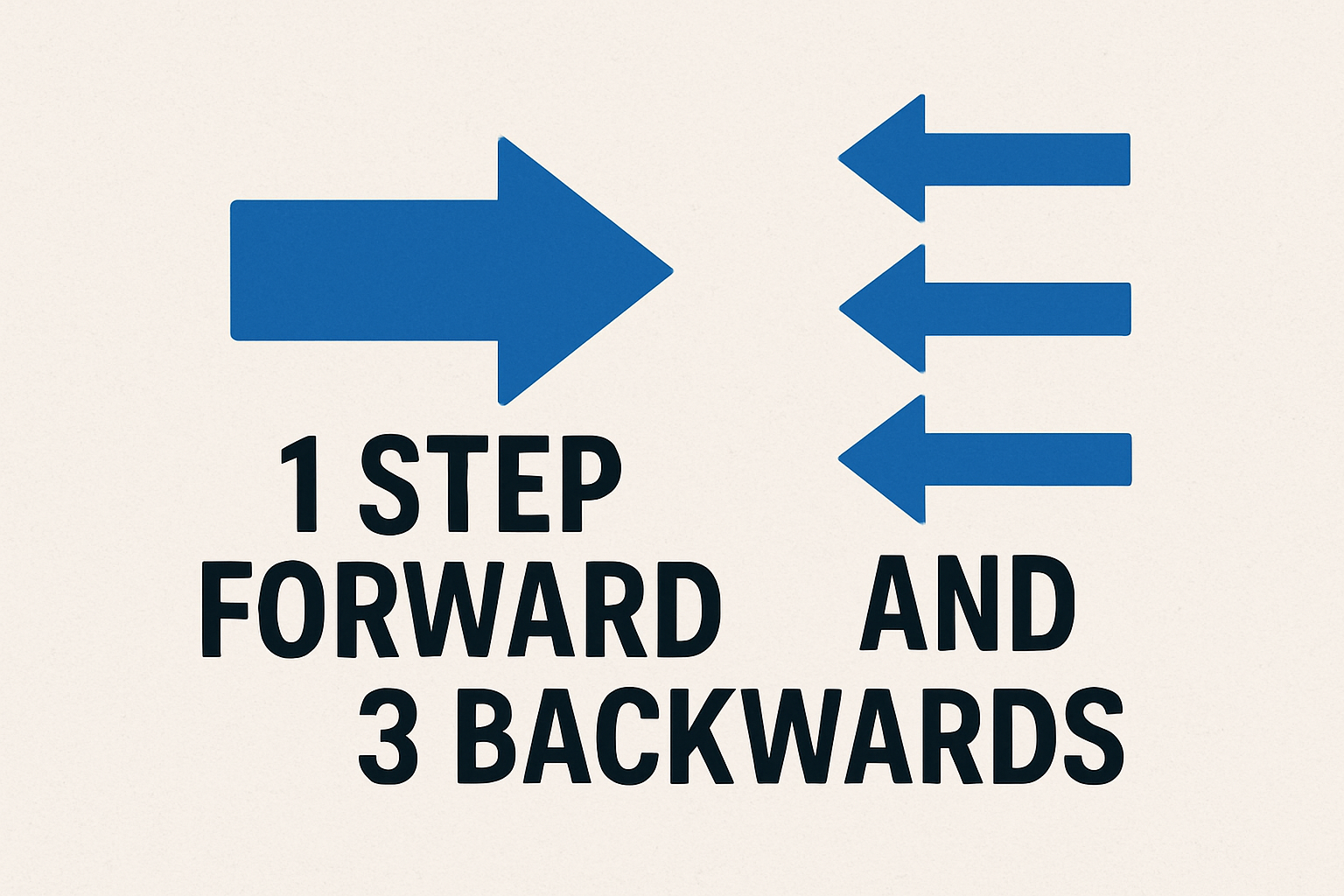I’ll admit it. I joined the Breasts and Eggs bandwagon a little late. I picked this book up after reading a review that lingered in my mind long after I closed the browser tab.
Breasts and Eggs. That title alone is voyeuristic. But Kawakami turns that voyeurism on its head. She compels us to stare directly at what we are often trained to avoid: the female body. Reading this book was an experience ineffable—something that I have now grown to expect from Japanese literature. This experience became even more unique as I read it side by side with Naomi Wolf’s The Beauty Myth, where Kawakami’s fiction seemed to testify to the very theories Wolf articulates about the commodification and control of women’s bodies.
Book Review: Mieko Kawakami’s Breasts And Eggs
Makiko, our narrator’s sister, is a thirty-nine-year-old woman fixated on her unshapely breasts (which have significantly changed after pregnancy—or not) and her unusually large nipples, whose color she likens to black cherries.
At first, the younger, all-too-liberal me reading in 2025—wallowing in body positivity and weary of cosmetic quick fixes—instinctively sided with Natsuko, who fails to understand her sister’s growing obsession with implants. The desire for breast implants feels jarring, even unnecessary, as we witness another woman falling prey to the beauty myth we’ve all supposedly outgrown. But Kawakami doesn’t let that judgment sit easily.
She turns the gaze back on the reader, testing our assumptions about vanity, agency, and what we believe a woman is allowed to desire.
In judging Makiko, we participate in the very structures we claim to critique. And so, what seems absurd at first becomes tragic—then tragically familiar.
Natsuko, the narrator, is more introspective but no less affected.
In the second half of the novel, her contemplations about whether or not to have a child without a partner bring forth a modern iteration of an ancient myth: the woman as life-giver—the maternal archetype, if you will. Somewhere, I feel, most women have had the forbidden pleasure of envisaging a life without the need for a partner, if only for a brief minute. My mind, so conditioned to expect the tidy closure of a perfect ending—where the man and woman come together, the happily ever after—was pleasantly shattered, and for good. So much for easy narratives. If gender is a script, then womanhood and reproduction, in particular, must be its central act.
Kawakami, interestingly, resists this mythologizing.
Natsuko doesn’t romanticize motherhood; instead, she investigates it as a social construct loaded with expectations and sacrifice. Her desire to experience motherhood on her own terms pushes against patriarchal and heteronormative myths that equate womanhood with reproduction. “When people say they want kids, what is it they actually want?” is sure to upset readers who have never so much as batted an eyelid about toying with the idea of bringing new life into the world.
And then there’s Komi—the near-spectral matriarch who offers her roof to the three women when Natsuko’s father becomes too abusive and eventually abandons them.
Komi moves through the novel like a shadow of the past, embodying the exhaustion of a generation of women who endured without question, without pause. Natsuko’s mother, too—not far behind—has worked herself to death. She is a haunting memory in the novel, a shadow of the oppressed working class, with its weariness and desolation that only the poor seem to possess. But equally, she is the mirror reflecting the debilitating version of womanhood that Natsuko fears her sister is slowly, inevitably slipping into.
But perhaps the most poignant—and oddly liberating—line is when Kawakami voices every woman’s struggle by saying: “I never became the woman I imagined.”
I imagine her cracking open a million heads like mine with that single sentence. Ascribed womanhood is a name we never choose but are constantly made to answer to.
There are far too many things to unpack in the book than a single review can hold—like Natsuko’s friends, Rika and Sengawa, who offer sharp glimpses into the sham identities women often uphold to survive, or her niece Midoriko’s heartbreakingly muted relationship with her mother, which both affirms and challenges the intergenerational silence women have long endured.
And then there’s that moment—almost absurd and primal—when Makiko and Midoriko throw eggs at each other. Eggs: the symbol of reproduction and fertility and all the tension bound therein. It’s disturbingly revelatory, a rupture that says everything words can’t—a physical release of all that simmering rage, confusion, and love that the language of womanhood has never quite known what to do with.
The book ends with another girl born into the story—an aching full circle that feels less like closure and more like continuation, as if the questions Kawakami raises will live on in her.
That the last word of the book, breast, once again ties womanhood to reproduction and the maternal fate expected of all women, left me disappointed—without the catharsis I was yearning for. I may have arrived at Breasts and Eggs later than many, but I’m glad I did—with the hindsight to see it as more than a trend. I cannot wait to re-read the novel at another bend in my womanhood to see what stings and what softens me in what I am only now beginning to understand.
